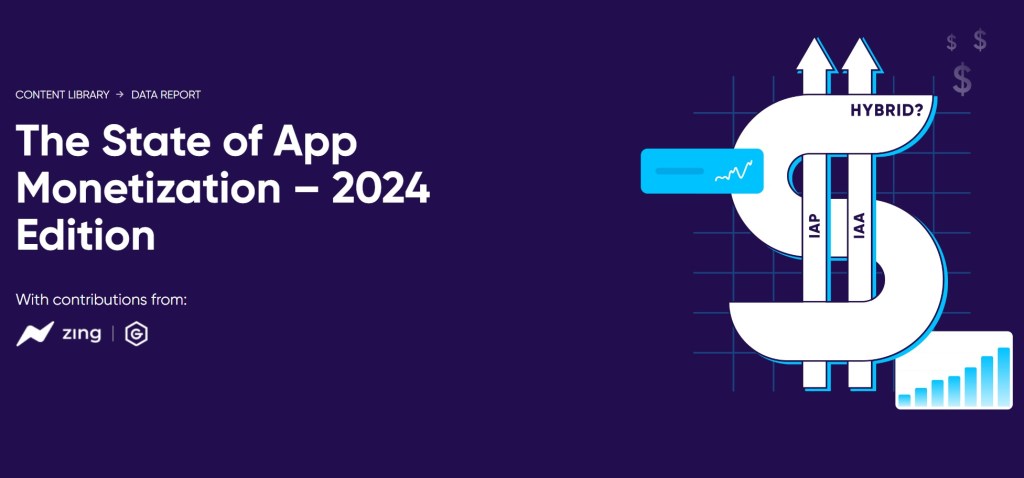Mobile games see high returns on hybrid monetization models | AppsFlyer

AppsFlyer released its 2024 State of App Monetization report today, which offers mobile developers insight into different monetization models and their returns over time for both gaming and non-gaming apps. According to the company’s findings, apps can benefit from hybrid or diversified revenue streams, and a collaborative approach between marketing and monetization teams will be crucial to competing in the 2025 market.
The report shows that, of the multiple approaches to monetization, certain kinds of games benefit most from a hybrid model — a combination of in-app purchasing (IAP) and in-app advertising (IAA). For mid-core mobile games on Android, hybrid models generated 146% return-on-ad-spend (ROAS) by their 90th day, compared with IAP-only (93%) and IAA-only models (58%).
Hypercasual titles on both platforms also saw a slight increase in average revenue per user (ARPU) for hybrid models compared with IAA-only. Profits on such games can be very thin — the difference on Android amounted to $0.60 ARPU (for hybrid) vs $0.47 ARPU (for IAA-only). That said, the report also shows that hybrid doesn’t always work, and one revenue stream can cannibalize the other; casual titles on both platforms show higher ARPU for IAP-only models than for hybrid.
The pros and cons of hybrid models
Shani Rosenfelder, AppsFlyer’s director of content strategy and market insights, said in a statement, “Our findings reveal that when optimized for the app type and audience, hybrid models are producing breakthrough results across platforms. For continued success, marketing and monetization teams should utilize ROAS and ARPU to fine-tune their strategies and ensure that their campaigns are align both before and after the install for the best results.”
Part of customizing this collaborative approach, according to the AppsFlyer report, is for developers to determine their profitability timeline and measure ROAS, as balancing acquisition, monetization, and retention can be tricky. Engagement and spending metrics also don’t always align, and the daily active users and the paying users don’t always respond to the same things.
Other findings in the report show that different kinds of games benefit from different user acquisition channels. For example, 73% of revenue in hypercasual and casual games comes from paid UA channels, while mid-core titles benefit from organic traffic and brand recognition. That said, AppsFlyer’s data shows that even mid-core titles can benefit from paid campaigns to maximize earnings by keeping players engaged over certain periods.



